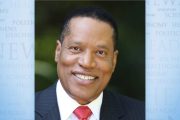
I pride myself on my understanding of the economy. It’s based upon an objectivist approach, one facilitated by my being in the trenches as a manufacturer, grinding it out day to day in the private sector and observing the nuances which affect our customers in their efforts to sell industrial or consumer products.
That approach is in stark contrast to the science of economics — one, like all sciences, based on theory done in a vacuum with a truly limited number of circumstances being analyzed at any given time. It’s those same limitations that left economists in academia and government reeling when the Great Recession hit critical mass in the closing weeks of August of 2008. It caught them off guard, when in reality the recession had actually begun in December of 2007. I knew it at the time and by the end of January of 2008, despite nearly universal economic commentary that everything was great, was convinced that we’d all have to make some tough decisions and sacrifices in the second half of 2008. We did, and the rest is history.
So far 2011 is feeling like 2008 all over again. Economists everywhere are touting ongoing, albeit limited, growth in the U.S. economy since June of 2009 as proof that the worst is behind us and we’re recovering nicely. To cement their claims, they throw around statistics showing increases in consumer confidence and manufacturing along with decreases in unemployment. On the other hand, I am reading entirely different tea leaves, which lead me to believe another painful recession is in the works (the fabled “double dip”), starting as soon as May.
Numerous factors have led me to that conclusion, but for the sake of brevity, here are the top three:
Rising prices: Even without the Wall Street collapse, 2008 would have been saddled with a recession because of out of control prices for oil (hence gasoline) and food, an outcome of both increased global demand and the Federal Reserve’s nonchalant approach to printing fiat money. That’s the main reason why I saw the 2008 recession developing when it did and why I foresee a 2011 repeat. It’s not rocket science: As people spend lots more at the gas pumps and grocery stores for the necessities of life, they have much less to spend on discretionary items and durable goods.
When an economy is 70 percent consumer spending, any decrease in the ability of its participants to consume will send out shockwaves. Right now, the sky is the limit for gasoline ($4.00 by summer?), food (the USDA says we’re looking at 4 percent price inflation this year, compared to 0.8 percent in 2010), and even clothing (the Strategic Resource Group is predicting a 10 percent rise in prices due to higher cotton and labor costs). Where will we find money to spend on toys, vacations, appliances, and cars? As consumption drops, so does resource acquisition, manufacturing, distribution, marketing, and selling. The devaluation of the dollar creates a devastating domino effect.
Global unrest: Related to the above, oil prices were rising before the sociopolitical chaos in North Africa and the Middle East. Now, with those factors in play, it’s a crap shoot. But beyond that, you don’t (re)build a nation in one day. Egypt, Libya, or any other country in a state of flux will have to redevelop its economy along with its structure of government, altering global trade. With so much uncertainty in the world, the global markets are walking on eggshells. So are world leaders (including our own), who daily ponder intervening in the affairs of those nations, through unjust (at least in America) development and funding of the military-industrial complex and the act of nation-building — which rob the wealth of more productive (and legal) sectors of the economy.
On top of all that, there’s the Japan disaster to contend with. The archipelago was, until late last year when it was overtaken by China, the number two economy in the world. A force that powerful can ill afford to have its infrastructure and utilities torn apart by one of the strongest earthquakes ever recorded, and the subsequent tsunami. They must now focus on repairing the damage instead of advancing their economy. The free markets will miss their hearty presence as they struggle to rise from ruin. Japan’s disaster will unfortunately give even more power to China — strengthening its iron-fisted oppression of its people — as well as other countries, robbing America and other more just countries of economic opportunity.
Relentless unemployment: Government economists, and the news outlets that regurgitate their tripe, would have us believe that all is well in the economy because unemployment is dropping on a monthly basis. By government standards, it’s at 8.9 percent. That’s still incredibly high. Even then, it’s grossly underreported. Over the years, state-sponsored economists have changed the way they tabulate unemployment, ignoring among other factors the discouraged workers who have completely dropped out of the workforce due to the lack of prospects. Over the past three years millions of such potential workers have fallen into that category. All of them could still stand to have the jobs and income they desire. If you added them back into the calculations, as should be done, the unemployment rate would be 22.1 percent. With so many families now having lower incomes (because one of the two wage-earners lost a job, or because there are fewer jobs to choose from), they feel it — we all feel it — when prices rise. These people lack either the money or the will to buy, a circumstance of fear over more job losses. And it’s that rightful uncertainty which begets double-dip recessions.
There are numerous others factors that lead one to believe that a recession is well on its way, ranging from almost-bankrupt states to unconscionable federal deficits to out-of-control entitlement programs. But, all of these are only the symptoms; they are not the cause. An unconstitutional federal government is the reason. Our markets are much less free than they once were — the invisible hand of government disabling our purchasing power, transferring our wealth, stunting our growth, and building nations that aren’t our own, all for the sake of control and the quashing of true liberty.
If only the economists who — willingly or unknowingly – support ongoing government abuses of our economy knew what we who work in the economy know, our nation would be a great deal better off. We’d all be able to ascertain what is actually happening in the economy and what can be done to right the ship.
So, unless the government gets out of the way, we’re looking at a prolonged period of economic malaise. Recessions will be followed by recessions, or we may be overcome by the long-term stagnancy similar to that which befell Japan in the 1990s. The year 2011 is guaranteed to be rough, and the future is uncertain, even unsettling.
Bob Confer is a regular contributor to The New American. He also writes a weekly column for the Greater Niagara Newspapers and is the vice-president of Confer Plastics, Inc.



